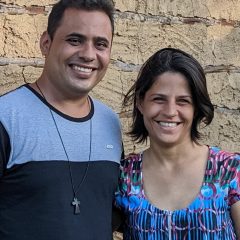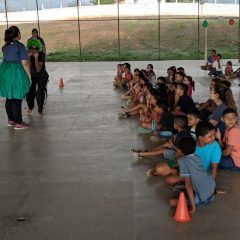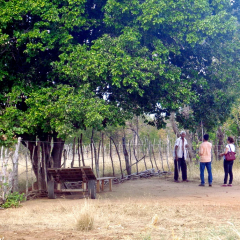Why JUVEP Seminaries?
Will
she
know
Jesus?
Who will tell her?
JUVEP seminaries are a major Sertão resource. Most seminaries train pastors. People who love, care and shepherd their church members. They create disciples and encourage God-glorifying lives. This is Kingdom work.
But, what if there is nothing. No faith. No followers of Jesus. Only despair. Drugs. Prostitution. Crime. Depression. Hopelessness. No belief in possibilities. Fatalism. Today, this girl lives in this lost world.
Will this be her future? Will she believe in the hope for a better life? In eternal security with Jesus? But how?
Most seminary graduate are NOT ready for this.
If there is no church, is it Pastor work?
Very few seminaries prepare their graduates to work in such a dark world. A world tightly gripped by Satan, locking people into wrong thinking – deceptions. For generation after generation the pattern continues.
Who will free the people from such misery?
JUVEP Seminaries:
Theology + Missiology
If seminaries train pastors, who trains missionaries? The study of missiology is about the of sending missionaries. It is considered a branch of theology, however, dealing with cross cultural evangelism is more than just academic theology. Language and customs can be a huge challenge. Most Western missionaries start with a worldview that is founded on Christian ethics, including a work ethic and the notion that effort will be rewarded. That is, we are responsible for our lives and our conduct.










Really Hard Missionary Work
There is a great outpouring of missionaries across closed (persecuted) countries in the world. This work is dangerous, but often the common people in those countries are interested in Jesus. This means the gospel opposition is largely external to the people. A few people can be brought to the Lord outside of the eyes of the authorities.
In other settings, Christians establish orphanages, hospitals and shelters for women. These expensive “good works” create natural contexts to share the news of Jesus. They are usually team efforts, meaning the missionaries don’t feel all alone. They also require financial support from “back home,” meaning there are others Christians paying and praying for the work.
By contrast, in the Northeast of Brazil, there is no persecution in the traditional sense. Yet, the people are trapped in failing worldviews. Nearly all missionaries in the Sertão are underfunded and work either alone or as a married couple. The common people in this region are afraid to learn about Jesus. They are afraid to study the Bible. A few underfunded missionaries in the middle of fearful people is a tough recipe for success. The demonic influences are powerful. People are trapped.
All missionaries need to be trained and prepared for their assignment. Those called to serve in the Sertão of Brazil’s Northeast need the right kind of preparation. Preparation not available from the multitude of “regular” seminaries in Brazil or worldwide.
JUVEP Seminaries are Special
The JUVEP seminaries (including CPM) have been very effective over the past three decades. Hundreds of people have been trained and deployed in kingdom work.
When people are trapped in deceptions, hearing the good news of Jesus is harder. Unfortunately, the Catholic church in Brazil’s Northeast is terribly compromised with idolatry and syncretism with native and African religions. Catholic opposition makes sharing the good news of Jesus harder. In some places the Catholic church is the central social place for the community (like bingo in the USA). People may be interested in Christian Bible study, but the Priests will intervene directly and threaten participants with loss of participation in Catholic. So, what might be the start of a wonderful change in worldview and faith in Christ is thwarted.


